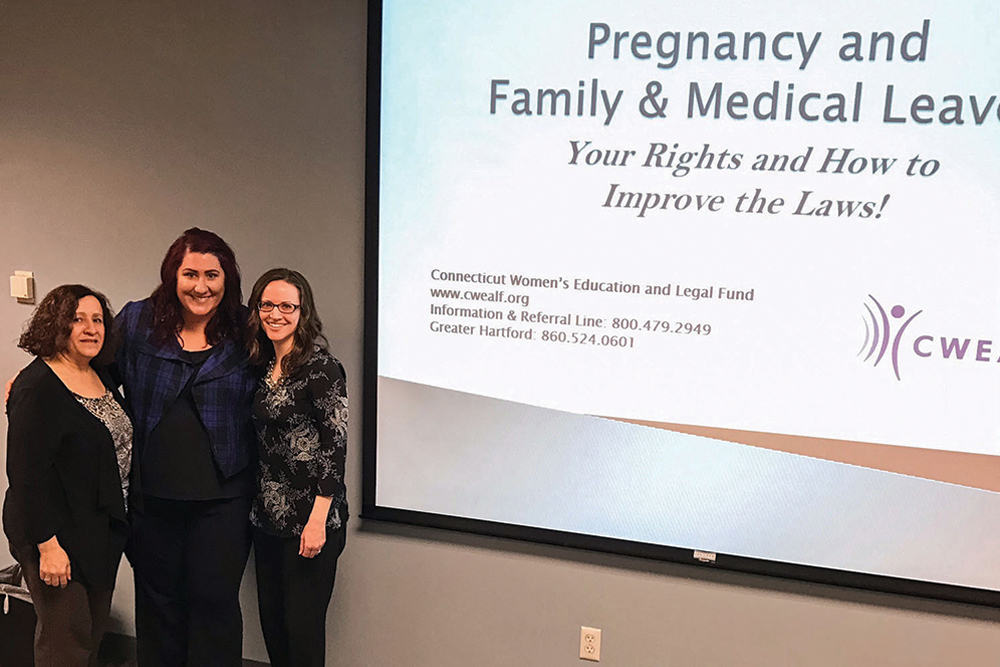Campaign for Paid Family Leave Prevails
Connecticut passes the most comprehensive paid family and medical leave in the nation.
 |
Did you know? The United States is one of two remaining countries in the world that does not provide paid family and medical leave nationally. Connecticut's paid leave law is one of the most comprehensive paid leave programs in the country. |
#MakeCTNext was the rallying call for activists across Connecticut as the Connecticut Women's Education and Legal Fund (CWEALF) lead the Campaign for Paid Family Leave -- Connecticut lawmakers answered their call. In 2019, Connecticut became the seventh state to pass comprehensive paid family and medical leave and the Community Fund for Women & Girls was right there advocating for it through its grant support of CWEALF. Public Act No. 19-25: An Act Concerning Paid Family and Medical Leave establishes a statewide system of job protected paid leave for workers who need to take up to 12 weeks of paid leave to care for themselves or a loved one.
The Campaign for Paid Family Leave, a coalition of more than 75 organizations and 100 small businesses, has fought for the passage of this legislation since 2013. The coalition plans to continue their work through the implementation stage. Workers will have access to paid leave beginning in 2022. The program will be employee funded through payroll deductions up to 0.5% of their weekly earnings up to the same taxable income as social security. Those who choose to take paid leave, the total weekly compensation will be capped at 60 times the minimum wage. Workers earning minimum wage will receive 95 percent of their weekly earnings up to 40 times the minimum wage and workers making above minimum wage will receive 60 percent of their weekly earnings above 40 times the minimum wage.
What You Should Know
- Workers of any sex or gender identity can take paid family and medical leave.
- Paid family or medical leave can be used to recover from a serious health condition, welcome a new child, care for a family member with a serious illness, serve as an organ or bone marrow donor or care for an injured military service member.
- Workers can take leave to care for any individual related by blood or affinity whose close association with the employee is the equivalent of those family relationships.
According to CWEALF, paid family and medical leave attracts and retains a talented workforce, removes the financial burden from small businesses, improves health outcomes for families and lessens the burden for workers of color who are overrepresented in low-wage jobs that do not provide paid leave.
